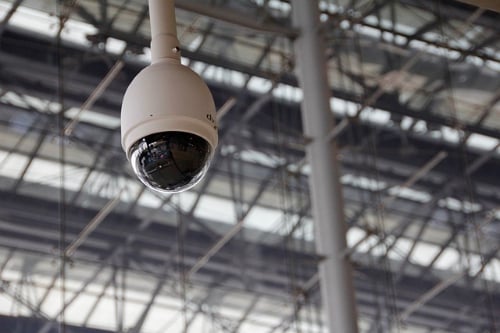Related searches

Phishing Attacks:The biggest Threat
Phishing emails trick employees into clicking malicious links or providing sensitive information. Hackers often disguise these emails as messages from banks, suppliers, or even company executives.
How to protect your business:
Train employees to recognize phishing attempts.
Implement email filtering and anti-phishing software.
Use multi-factor authentication (MFA) for all accounts.
Ransomware: Holding Your Data Hostage
Ransomware encrypts business data and demands a ransom for its release. Small businesses are attractive targets because they often lack proper backups.
How to protect your business:
Regularly back up important business data offline.
Install and update security alarm systems for your IT infrastructure.
Use endpoint detection software to identify ransomware attacks.
Weak Passwords & Credential Theft
Many businesses still use weak or repeated passwords, making them easy targets for cybercriminals.
How to protect your business:
Enforce strong password policies (at least 12 characters, mix of letters, numbers, symbols).
Use a password manager for secure storage.
Implement two-factor authentication (2FA) for business accounts.
Insider Threats: Employees Can Be a Risk
Employees—whether intentionally or accidentally—can compromise business security by mishandling sensitive information.
How to protect your business:
Limit employee access to sensitive data.
Conduct regular cybersecurity training.
Monitor activity with business security monitoring tools.
How to Secure Your Small Business: Best Practices
Invest in a Reliable Business Security System
A business security system isn't just for physical security—it also protects digital assets. Consider solutions that include firewalls, endpoint protection, and network monitoring.
Set Up a Security Alarm System for Your IT Infrastructure
A security alarm system for business helps detect unauthorized access, malware intrusions, and other cyber threats in real-time.
Implement Regular Security Audits
Conduct security audits at least twice a year to check for vulnerabilities and ensure compliance with industry security standards.
Educate Employees on Cybersecurity Best Practices
Your employees are the first line of defense. Providing cybersecurity awareness training reduces the risk of human errors leading to security breaches.
Partner with a Business Security Company
If managing cybersecurity in-house is overwhelming, consider hiring a business security company that specializes in protecting small businesses from cyber threats.
Conclusion: Take Action to Protect Your Business
Cybersecurity is no longer optional for small businesses—it’s essential for survival. By implementing strong security policies, investing in a business security system, and educating employees, you can significantly reduce cyber risks.
Don’t wait for a cyberattack to take action! Explore the best business security systems near you and ensure your business stays protected in 2025 and beyond.
Secure your business today—invest in cybersecurity and safeguard your future!






